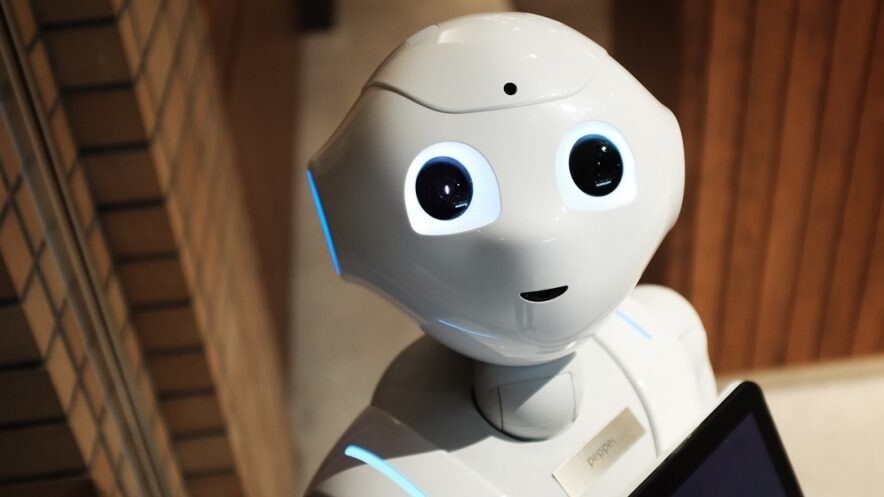
This post was originally published by NoCamels. Check out their excellent coverage and follow them down here:
Imagine this: you’re sitting in your house. Next to you, your companion robot turns its head and begins to converse, suggesting a TED talk you might like. A helper robot brings you a cup of tea. Your smart home control robot warns you that the iron is still on, and security bots climb the walls.
While it may sound like sci-fi, Israeli companies have already created robots that can do all of these tasks.
The robotics industry is exploding worldwide. Market research and intelligence firm, Tractica, predicts that the industry will grow from $34.1 billion in 2016 to $226.2 billion by 2021, with the growth driven primarily by non-industrial robots.
It’s not hard to see why. Decreased costs of hardware and the free provision of software such as Amazon Alexa are making robotic development easier than ever.
Artificial intelligence, which is the ability of machines to learn from their environment and complete human-like tasks, is also transforming the robotics industry. Since IBM’s supercomputer, Watson, defeated humans in the quiz show Jeopardy in 2011, resources and brain power have been poured into progressing AI to create more sophisticated robots.
With strengths in mathematics and hi-tech, companies and researchers in Israel are contributing more than their fair share of this brain power.
Mobileye, an Israeli company that uses AI to allow autonomous vehicles to navigate safely, was recently acquired by Intel for $15 billion. Mazor Robotics, an Israeli medical robot company, has revolutionized spinal surgery with their robotic system. Gal Kaminka, a professor at Bar-Ilan University and national robotics expert, is advancing robotic ‘minds’ with funding from international organizations such as the U.S. Airforce.
In 2016, Prime Minister Benjamin Netanyahu expressed that, “Just as we have become a leader in cybersecurity, we must also propel forward the robotics and automation industry in order to take a place at the forefront of the sector.”
Here are some of the coolest robots developed by companies and researchers in Israel:
Intuition Robotics – ElliQ

In the field of companion robots, Intuition Robotics’ ElliQ stands out for its human-like persona.
The artificially intelligent robot improves the lives of the elderly by suggesting activities to keep them active, connecting them with family and friends, and reminding them about appointments and medication.
ElliQ can sense its environment, recognize faces, and communicate with people by talking and processing speech. Its advanced body language, gestures, and emotional range give it a personality that seems to transcend machinery.
Founded in 2015 by Roy Amir, Itai Mendelsohn, and Dor Skuler, the company has raised a total of $7 million from seed and Series A funding. While ElliQ hasn’t yet been released on the market, avid consumers can sign up to be part of the testing phase.
Roboteam – Household Robot
Israeli robotics company Roboteam is planning to launch 10,000 consumer robots this year. Previously focused on military robots, Roboteam wants to create a new robot that helps people around the house.
“Seven years ago I went to visit my dear grandma,” says Yosi Wolf, cofounder of the company. “When I saw her trying to carry a cup of tea and cookies and she was shaking.. I knew we could provide services to help elderly people.”
According to Wolf, the robot will be 3 feet high with an interactive 10-inch display. It will be able to navigate around objects using 40 sensors, and it even has a tray to carry items.
Roboteam wants its robot to be the iPhone of consumer robotics, with a similar price point and sophisticated capabilities.
Founded in 2009 by Yosi Wolf and Elad Levy, the company has raised a total of $62 million in two funding rounds, with personal investment from the ex-CTO of Alibaba and co-founder of the Fenghe Investment Group, John Wu.
Guy Hoffman – Vyo
Guy Hoffman, a researcher at the Inter Disciplinary Center in Herzliya, has developed a social robot to control smart homes.
Shaped like a microscope, Vyo manages smart homes by turning devices on and off, providing status updates, and monitoring the house for security purposes. Vyo has facial recognition, and interacts through voice commands and verbal responses.
It also has an appealing personality. Hoffman is known for his work on robots that act like humans: he was catapulted to fame in 2009 for his engaging TED Talk on Robots with “Soul”.

Vyo is still in the developmental phase, but Hoffman already has a range of other robots with similar human-like personalities. For example, Travis is a speaker robot that “dances” to music.
Hoffman’s work could change the way we interact with machines: research conducted by Hoffman and a team of robotics experts showed that people felt better about themselves after interacting with a robot that responded emotionally to them.
Locust Robot – Tel Aviv University Researchers

Professor Amir Ayali and a team of researchers at Tel Aviv University have developed a robot that could transform the way surveillance is conducted.
The four-inch long Locust Robot mimics the biological mechanism of jumping, and can reach a height of 11 feet – more than twice the height of similar-sized robots, according to the researchers.
Able to be cheaply 3D printed (costing only around $100 USD), the robot is part of a wave of 3D printed robot designs that can easily be mass produced.
The robot would be useful in search and rescue missions and reconnaissance operations in rough terrain.
It has not yet been released on the market, and the team are working on developing the robot’s capacity to jump higher, fly, and even move with other robots in a swarm.
BGU – Animal Robots

The Ben-Gurion University Robotics Lab, led by Dr. Amir Shapiro, is creating robots inspired by science fiction films. Designed to mimic animals (a technique known as biomimetics), the autonomous robots do work that is too dangerous or trivial for humans.
Snake-like robots have been designed to go into tight spaces on search and rescue missions. A fruit-picking robot, which Dr. Shapiro received a $1.3 million grant to develop, uses visual feedback to find and pick specific fruit. A wall-climbing robot, inspired by snails, can climb on almost any surface and has wide-ranging applications in intelligence gathering.
Although these don’t seem as if they will be provided for consumer use, it might not be long before we see packs of animal robots deployed by larger organizations to complete tasks around us.
A Future Hub
International investment and local talent continue to be funneled into the robotics industry. Given what this country has already achieved, we should expect a lot more exciting robotic developments in the future.
Get the TNW newsletter
Get the most important tech news in your inbox each week.




